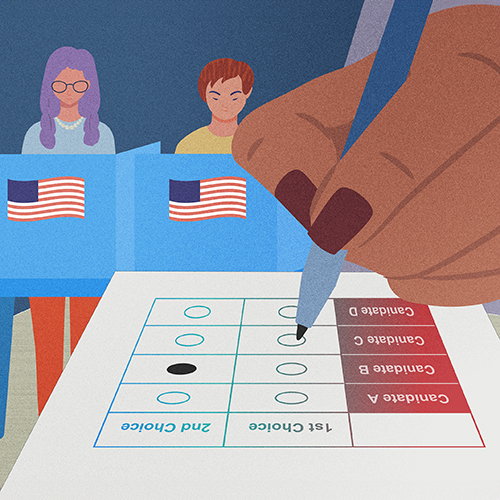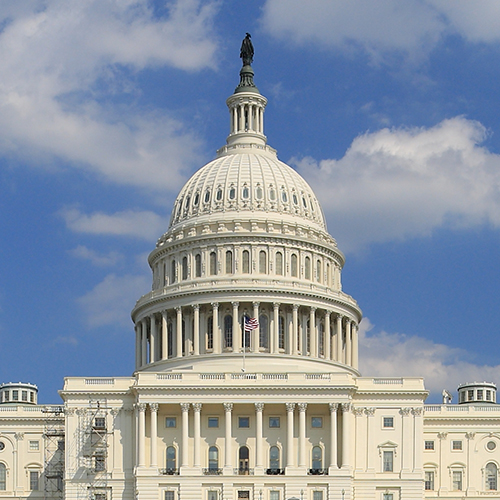As Benjamin Franklin pointed out centuries ago, nothing is certain but death and taxes. Yet while people complain endlessly about taxes, they clam up when it comes to discussing death.
Faculty and students in the UW Communication Leadership (CL) graduate program, based in the Department of Communication, have been working to change that. The result is Death Over Dinner, a web resource that encourages people to host dinners for family and friends to discuss end-of-life issues. To date, Death Over Dinner has been the impetus for more than 1,000 dinners in 17 countries.
“You might ask, ‘Why would I have this conversation over dinner?’” poses Michael Hebb on the Death Over Dinner website. “The dinner table is the most forgiving place for difficult conversation. The ritual of breaking bread creates warmth and connection, and puts us in touch with our humanity. It offers an environment that is more suitable than the usual places we discuss end of life.”

Hebb, an experienced restaurateur, has spent years exploring the dinner table as a tool for social change. Having organized themed dinners on a variety of social issues, he wondered how digital media might be used to leverage such events. As a visiting fellow in the CL program last year, he and CL associate director Scott Macklin co-led a course that served as a directed research study to explore the possibilities.
“We knew we wanted to construct a course around social ritual and digital media,” recalls Macklin, “and we decided we needed a theme for the conversation.” The pair tossed around ideas—redesign of Thanksgiving, the Palestine-Israel peace process—but nothing seemed to stick. Then Hebb met two physicians on a train ride from Portland to Seattle who were talking about end-of-life care. The doctors mentioned that while nearly 75 percent of Americans want to die at home, only 25 percent actually do. Hebb recalls asking them, “Do you think that how we end our lives is the most important and costly conversation America is not having?” Their response: “Absolutely.”
Hebb told Macklin he thought the topic was perfect for the study. ”We don’t know how to have that conversation,” Macklin responded. Hebb countered, “That’s precisely the point.”

Macklin was soon convinced and eager for the challenge. “It meant a deep dive into a topic that affects everyone,” he says. “Michael and I really wanted to use this project as a means to shift and evolve the conversation we have around end-of-life care, from not having the conversation to one where families can be mindful and active about this conversation.”
Fittingly, the course was held around a dinner table each week, over a meal prepared by Hebb, Macklin, and their students. Invited guests offered expertise, ranging from doctors to authors to a designer of tombstones and other memorials. “Having guest speakers was crucial,” says Macklin. “They all brought their particular perspectives.”
CL student Cynthia Andrews recalls an evolving dynamic over the course of those dinners. “Talking about death and dying was difficult at first,” she says. “It just wasn’t natural to do. There was this feeling that it should be tiptoed around. As the class progressed, it became easier and easier, and then completely normal.”
"Talking about dying was difficult at first. It just wasn’t natural to do. There was this feeling that it should be tiptoed around. As the class progressed, it became easier and easier, and then completely normal.”
As students learned more about end-of-life issues—particularly those that people tend to avoid—they identified key questions for dinner conversations about death. They also hosted their own dinners with family and friends, reporting back on what worked and what fell flat. By the end of the quarter, they had the raw material for a website—an online resource guide with prompts for dinner discussions, suggested readings, videos, exercises, and information about living wills and other directives—as well as a social media strategy to drive people to the site. “We wanted to give people the tools, resources, and models to conduct their own dinners in their own context,” says Macklin.
Andrews, who has hosted three dinners and plans to host a fourth in January, describes the dinners as a “wonderful experience” for both the host and the guests. “It’s a freeing experience to talk about something that, for me, was a hush-hush topic throughout my life,” she says. “To create a space that makes others feel comfortable discussing something of such gravity is a fantastic thing.”
For her most recent dinner, Andrews used resources provided on the Death Over Dinner website, including conversation prompts. “Having that sort of outline helped me keep people on topic and keep the conversation moving,” she explains. She also encouraged her guests to read related articles, audio recordings, and videos—all linked to the website—before the dinner. “Having this common thread of knowledge really put people at ease,” she says.
Recognizing Andrews’ passion for the project and knowing that she had experience in the social media space, Hebb asked her to create and manage Death Over Dinner’s social accounts. She has spent the last year working to bolster Death Over Dinner’s digital presence by creating active, engaging communities on Facebook, Twitterand Instagram. Andrews’ work has been instrumental in driving people to the website and promoting the program, which has been highlighted in The Wall Street Journal, Marketplace, The New York Times, Bloomberg ,The Huffington Post, The Atlantic, KUOW, and other media outlets. A new campaign, #SevenTwoOne, is expected to further increase participation.
For Macklin, who hosted his own Death Over Dinner event after co-leading the study, the success of the project has been gratifying both professionally and personally. “It’s been fascinating to be involved in a project that is so crucial and important to the self,” he says. “This wasn’t just a mere exercise; it was a look at my life and my relationship to others. I don’t know if it’s made the conversation about death any easier for me or my family, but I’m able to see that it’s okay for the conversation to be difficult. Just because it’s difficult, that’s not a reason to avoid talking about it.”
For more about Death Over Dinner or guidance in hosting your own dinner, visit deathoverdinner.org, which provides a wealth of free resource materials. You can also find them on Facebook as Let’s Have Dinner and Talk About Death and on Twitter/Instagram as @deathoverdinner.
More Stories

Is This Presidential Campaign Different?
UW History professor Margaret O'Mara provides historical context for this moment in US presidential politics.

Democracy by the Numbers
Mathematics and Democracy, an undergraduate mathematics course, explores the role of math in many aspects of democracy, from elections to proportional representation.

Making Sense of This Political Moment
To navigate this momentous election season, Arts & Sciences faculty suggest 10 books about the US political landscape.